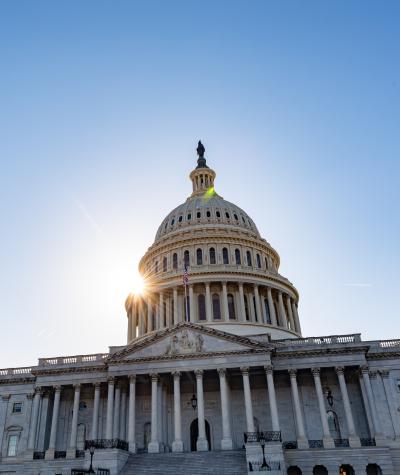In an important development for congressional ethics, Representatives Katie Porter of California and Chris Pappas of New Hampshire have introduced the Clean Legislating and Ethical Accountability Now (CLEAN) Act, H.R. 9355.
This bill strengthens independent ethics enforcement in the House of Representatives by making the Office of Congressional Ethics (OCE) permanent, which plays a vital role in informing voters of whether their elected officials are complying with ethics laws.
Established in 2008, the OCE is the only independent ethics investigatory body in Congress. By codifying it, the CLEAN Act would ensure that the OCE is no longer subject to the reauthorization process at the beginning of each new Congress.
While the House has maintained the OCE in its rules since it was first created, its existence has not always been guaranteed.
In fact, the OCE has been subject to multiple past attempts by Congress to weaken or eliminate it. In 2017, Congress tried to gut the OCE by eliminating its ability to take anonymous complaints and removing its independence by bringing its work under the House Ethics Committee.
In 2023, the House tried to change the rules for the OCE, limiting when the body could hire staff and requiring three members of the board to vacate their positions.
If those attempts had succeeded at limiting the OCE’s ability to conduct effective investigations, it would have been detrimental to both the public’s trust in Congress and to the OCE’s efforts to safeguard the House against corruption.
The OCE’s investigations bring public awareness to potential violations of ethics laws and standards of conduct. These potential violations vary greatly, ranging from members failing to file timely stock trading reports, to misusing official resources, and accepting improper gifts.
A permanent OCE allows experienced, nonpartisan ethics attorneys to continue to conduct investigations of alleged misconduct, instead of relying on self-policing by partisan members of Congress.
The importance of this independence can be seen by comparing the House with the Senate, which does not have a body like the OCE and suffers from weaker ethics enforcement.
To demonstrate the contrast, a recent Campaign Legal Center (CLC) study found that between 2010 and 2020, only 3% of Senate ethics investigations found a violation. In the same period, 41% of the OCE’s investigations resulted in finding a violation.
Codifying the OCE sends a message to the public that Congress takes independent and nonpartisan ethics enforcement seriously, and that effective oversight should not be left to the amenability of the majority party at the start of each new Congress. For these reasons, Campaign Legal Center calls on Congress to pass the CLEAN Act without delay.

